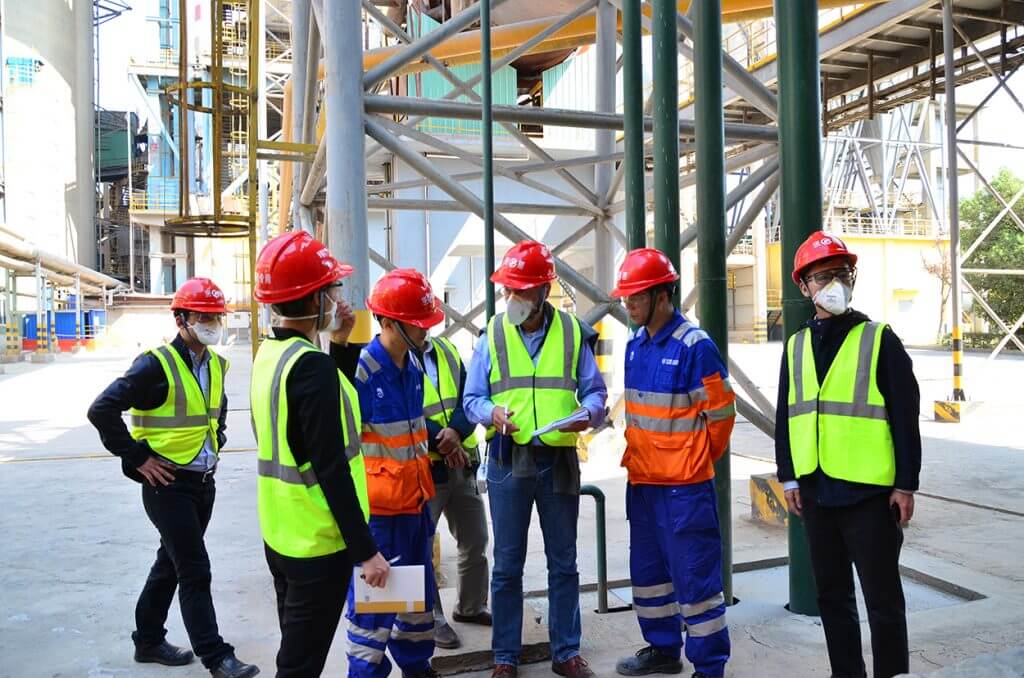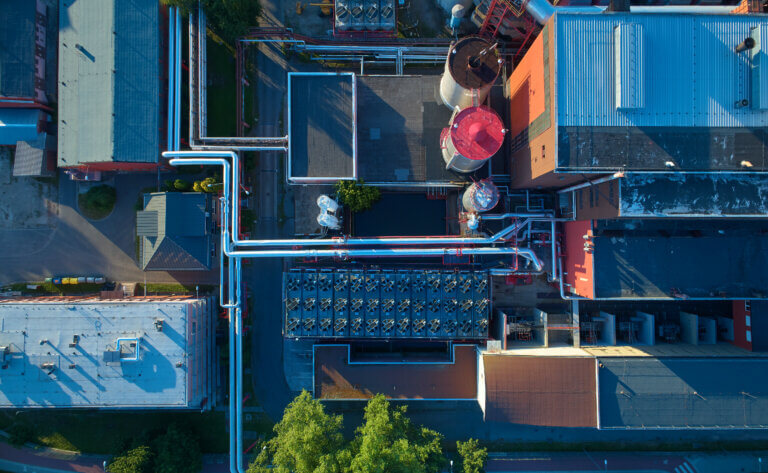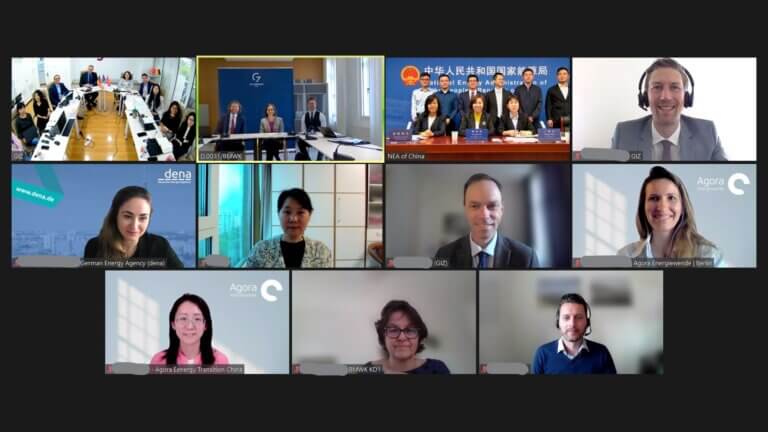The successful completion of the first project phase of the “Sino-German Demonstration Project on Energy Saving in the Energy-intensive Industry through Energy Diagnosis and Energy Efficiency Measures in China” was marked by a review meeting in Beijing on December 17, 2019 under the auspices of the National Development and Reform Commission of the P.R. China (NDRC) and the German Federal Ministry for Economic Affairs and Energy (BMWi). Representatives from the Deutsche Gesellschaft für Internationale Zusammenarbeit (GIZ) GmbH, the German Energy Agency (dena), the National Energy Conservation Center of the P.R. China (NECC) and the six pilot companies presented the project’s achievements and outputs.
The demonstration project is part of the Sino-German Energy Partnership between BMWi and NDRC. The overall aim of the project is to identify large economic potentials for energy saving and environmental protection in selected Chinese energy-intensive companies through energy diagnoses, to introduce and spread life-cycle cost analysis (LCCA) in China’s industry sector and to implement identified measures in a close partnership between German and Chinese companies. During the last two years, GIZ and its project partners carried out a variety of activities:
- Implementation of energy audits in pilot companies, derivation and dissemination of energy efficiency measure catalogues
- Introduction of Life Cycle Cost Analysis in China and respective capacity building
- Capacity building for energy-efficient solutions and processes as well as energy audits and energy management in industrial companies
- Development of the framework for energy audits in China including legislation, standards and guidelines based on German experiences
- Strengthening of private sector cooperation between German and Chinese companies in the field of industrial energy efficiency
- Promotion and dissemination of project results and experiences
A quick glance at the project’s achievements and outputs:
Energy Audits in Pilot Companies: From September 2018 to March 2019, the project partners implemented six energy audits in the sectors cement, glass fiber, ceramics, pulp & paper, power plant and airport. After identification, the project partners continuously supported the implementation of identified measures in the six pilot companies. The measures and lessons-learned have been compiled in comprehensive measure catalogues for further reference to similar plants and companies across China.
Life Cycle Cost Analysis: In 2018 and 2019, GIZ conducted two training sessions to demonstrate the economic benefits of considering life cycle costs for energy efficiency projects to practitioners and industry experts. Further, a LCCA calculation tool developed by Energetic Solutions and a user guideline were introduced to the workshop participants. These capacity building activities helped to increase awareness for LCCA in China’s energy intensive industry. Participants showed keen interest to further spread the acquired knowledge within their companies.
Standard Introduction: By translating the German energy audit standard DIN EN 16247 into Chinese, and facilitating exchange through an expert workshop on energy audits, GIZ and NECC contributed to the update of China’s National Standard on “General Principles of Energy Audits”, which will take effect in May 2020.
Policy Exchange: GIZ commissioned a study on energy efficiency policies in Germany to provide holistic insights into German policies and lessons learned in the field of energy efficiency for policy development in China. Furthermore, a Sino-German expert workshop on energy efficiency policies was organized to intensify and broaden the discussion.
Study – German Energy Conservation Policies_EN
Study – German Energy Conservation Policies_CN
Business Exchange: GIZ, NECC and dena jointly organized a “Sino-German Energy Efficiency Matchmaking Conference” in August 2019 and a delegation trip of Chinese industry representatives to Germany (October 2019) to provide a platform for private sector cooperation. The presented topics and solutions were based on the identified energy efficiency measures in the energy audits.
In the second project phase, GIZ and its partners will continue to support the implementation of energy efficiency measures in the pilot companies and further disseminate the lessons-learned and experiences by organizing sector-specific information events and capacity building activities. For more information about the demonstration project, please contact Mr. Maximilian Ryssel (maximilian.ryssel(at)giz.de).



